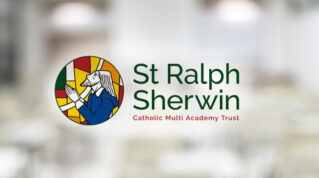The government has all but ruled out naming individuals responsible for academy trust scandals in public investigation reports as it admits to fears that it could be sued.
The Department for Education published five investigation “outcome” reports on Tuesday into academy controversies stretching back 14 years.
The reports revealed one trust spent £26,000 on gift cards for staff. Another flagged conflicts of interests relating to £570,000 spent with a company related to a staff member.
But no identifiable information for the individuals or companies involved were included.
Reports are now “outcomes” of investigations, as opposed to investigation reports.

Susan Acland-Hood, the DfE’s top civil servant, said a review into the government’s investigation policy concluded that “very detailed reports which included named individuals” are “not required to support other organisations to learn lessons” from investigations.
But Lucia Glynn, an academy consultant, said: “When you take on a role as a chief executive, chief financial officer, chair of a board, you are signing up to the Nolan principles.
“They should name names… so those working in the sector know they will be accountable for their decisions.”
‘Naming individuals not necessary’
Schools Week revealed in November that the department altered its policy to now only publish investigation “outcomes”.
The first of these, on its eight-year investigation into the now-closed Lilac Sky Schools Trust, was published in October. The report was three pages long.
After our story, the Public Accounts Committee ordered an explanation from the DfE. Members said they were “concerned” the changes “hindered transparency”.
Responding, Acland-Hood said the now-defunct Education and Skills Funding Agency had “assessed that the time and resource to produce a single detailed investigation report and complete the Maxwellisation process [on Lilac Sky]… would be challenging [and] potentially subject to further legal proceedings”. This would be “disproportionate to the benefits of publishing a detailed report”.
Maxwellisation is when an individual subject to criticism is given the opportunity to respond.
In changing its publication approach, the government “prioritised providing transparency… and enabling other organisations to learn lessons”, Acland-Hood said in a January letter.
She claimed that “including details on individuals is not required to support” others to learn lessons.
But she did say other reports would be “more explicit” in describing the learnings for the sector.
Lessons learned
The outcome reports released this week all contained lessons learned sections produced following “prevention analysis exercise[s]”. Analysis by Google Notebook suggests that just over 25 per cent of the reports were devoted to this.
But some are generic.
For instance, the report detailing the “outcomes” of an investigation at the Stephenson (MK) Trust reiterated current academy guidance trusts “must ensure that they make a referral to the [DfE] for prior approval” of novel, contentious and repercussive transactions.
It also stated that chains should ensure spending policies contain “a section or line that outlines that trust funds must not be used to purchase alcohol”.
A probe into Griffin Schools Trust also concluded that chains should ensure “procurement is open, fair and transparent, value for money and… that they have documentary evidence of the decisions that have been made”.
Glynn added that the academy trust handbook and local authority-maintained school guidance should “capture the learnings… so …it makes it easier to hold people to account”.
Two-month promise
Acland-Hood said officials would now consult trust and college “forums” to “seek feedback” on how they “further support” the sector “to understand the gaps in practice identified and lessons they can learn from the investigations”.
She also reiterated the ESFA’s commitment to publishing the “outcome reports within two months … to provide transparency over how public money is spent”.
However, the last of the five reviews released this week was completed last summer.
Meanwhile, investigations into alleged scandals, including the Bright Tribe Trust and SchoolsCompany, remain gathering dust.
Of the reports published this week, it was found £570,000 of payments to a company linked to an unnamed staff member at Griffin Schools Trust from 2014 to 2021 had broken rules. Almost £2,500 of “contentious” payments on “antique furniture” and artwork were identified.
At Stephenson (MK) Trust, £25,700 of “irregular” spend on gift cards for staff attendance between 2016 and 2022 was uncovered.
Tennyson Learning Community Trust was found to have an “improper recruitment process” and that £900 of cash generated from selling “obsolete” iPhones to staff in 2019 had been misplaced for three years.















That shift raises serious concerns about transparency and accountability in the education system. Changing “investigation reports” to “outcomes” and omitting the names of offenders could protect institutions more than it protects students or staff. While there might be legal reasons behind the change—like data protection—it risks eroding public trust, especially in cases where there’s a pattern of misconduct.
If the goal is genuine accountability, anonymizing wrongdoers and limiting information only fuels suspicion. The public, and especially the school community, deserves clarity about how serious issues are being addressed—not vague summaries.